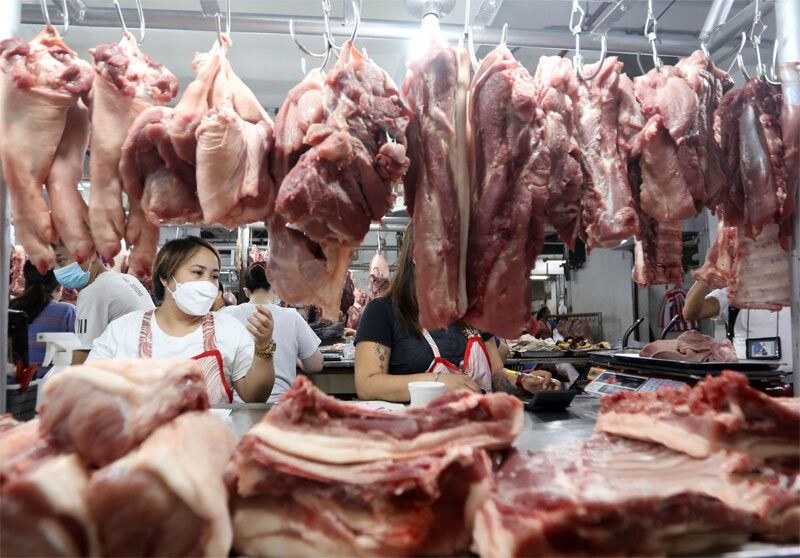It’s more expensive in the Philippines


It really is more fun in the Philippines. We complain a lot about our politicians, but we keep voting for them. Then things start falling apart, but not to worry… our leaders say we are resilient and we are survivors.
Lately, we have started to notice that it is also getting to be more expensive to live in the Philippines. Prices of basic goods and services are going up. Food prices, power rates, medical care… you name it and the cost is up.
Those of us who are lucky enough to have something to eat three times a day should wonder how others manage. When Social Weather Stations asked them, half of all the Filipino respondents told SWS they felt poor. Many told SWS they suffer involuntary hunger some days of the month due to lack of money to buy food.
Junior’s son who is now a congressman says inflation is essentially foreign driven. He was effectively saying it is not our fault and suggested we can do little about it. Of course, he is wrong.
The bare fact we have this problem is negligence and corruption from over half a century of electing corrupt politicians who have no sense of public interest. As if stealing from the National Treasury is not enough, they also neglected our problems in agriculture and energy until these problems now look unsolvable.
A good question to ask Junior’s son is why prices in neighboring countries seem to be lower than ours. Singapore, for instance, which imports 99 percent of everything they eat apparently has lower food prices than here in our beloved Philippines.
Pinoys in Singapore can tell Junior’s son that food is cheaper in Singapore than in Manila. That surprised me too. My son lives in Singapore and I have always thought grocery items are more expensive there. Apparently, not.
Coconuts Manila, a news website, reports that “Filipinos have begun comparing the prices of goods in supermarkets abroad versus those at home. One post on Reddit, in particular, said that one can purchase more with P650 (US$13) in Singapore than in Manila and showed receipts – literally.
“You know your country’s screwed when P650 can get you this in a first world country,” user u/freesink wrote next to a photo of a grocery haul that included a carton of eggs, bananas, carrots, cucumbers, cabbage, a bag of calamansi, onions, and a loaf of bread.
“Meanwhile, to compare, a kilo of cabbage and carrots each cost P100 (US$2) and P120 (US$2.4), respectively, according to the Department of Agriculture.
“The user went on to directly compare prices between Singapore’s FairPrice supermarket and the local SM Supermarket: 700 grams of red onion cost SGD1.25 (P51.79 or US$0.91) in Singapore, while in the Philippines it could cost P168 (US$3.36), 500 grams of carrots in Singapore cost SGD 0.95 (P39.36 or US$0.69), while locally it would set you back P62.5 (US$1.25).”
Of course, it shocked a lot of Filipinos online. We know we are being screwed, but didn’t know how badly.
“Holy shit! The prices in the Philippines are more expensive, but the base salary is incredibly low compared to Singapore,” one said.
“Funny how fresh produce seems to be more expensive here where they can be grown locally than in SG where they are probably imported,” another said.
“First World prices with a Third World income,” a user lamented.
It isn’t just Singapore. Coconuts also cited academic Renee Karunungan Edwards who in October also compared prices between United Kingdom-based grocery retailer Aldi and SM Supermarket. Amid reports of extremely high onion prices, stating that a kilo of onion in the UK was at GBP 0.50 or P32.76, while in Manila it was being sold for P136.
With foreign corporations headquartered in Hong Kong leaving as China tightens the political screws, there are some folks here who are dreaming of offering Manila an alternative site for regional headquarters. Perish the thought. It is not worthwhile to suffer Third World governance with our increasingly First World living expenses.
Paul John Cana wrote in Esquire Philippines that in a survey of home rental prices across six cities in Southeast Asia, the Philippine capital ranked second, just behind Singapore.
“According to research by ecommerce aggregator iPrice, the price of a one-bedroom apartment in the city center of Manila is 56 percent higher than in Kuala Lumpur, 47 percent higher than in Jakarta, 31 percent higher than in Ho Chi Minh, and nine percent higher than in Bangkok.”
Rental prices in Singapore are still higher than in Manila. But that’s because of limited land area and high demand from residents and non-residents alike. But for locals, Singapore has a good housing program for them, something non-existent here...and Singapore has a civilized mass transport system we can only dream of.
As for the cost of living, the Esquire article notes Numbeo, a database platform that compiles the cost of living in different places around the world, showed Manila came in third highest at P50,800, just slightly below Bangkok at P51,500. The study takes into account the usual necessities, including rent, food, transportation, utilities, etc. Not including rent, the total cost of living is still about P28,800 per month in Manila.
“Overall, the cost of living in the capital of the Philippines is 33 percent higher than in Kuala Lumpur, 28 percent higher than in Ho Chi Minh, and 24 percent higher than in Jakarta. Topping the list again, unsurprisingly, is Singapore, where the average monthly cost of living is a whopping P119,732.
“Consider those numbers and stack them up against the fact that, according to Numbeo, Manila residents have the lowest estimated average net salary compared to the other five cities. iPrice says the average salary of Filipino workers living here is only about P18,900 per month.
“In effect, the average cost of living in Manila is 168 percent higher than the average salary.” Buti na lang resilient tayo!
Basta! It’s more fun in the Philippines!
* * *
Boo Chanco’s email address is [email protected]. Follow him on Twitter @boochanco
- Latest
- Trending


























